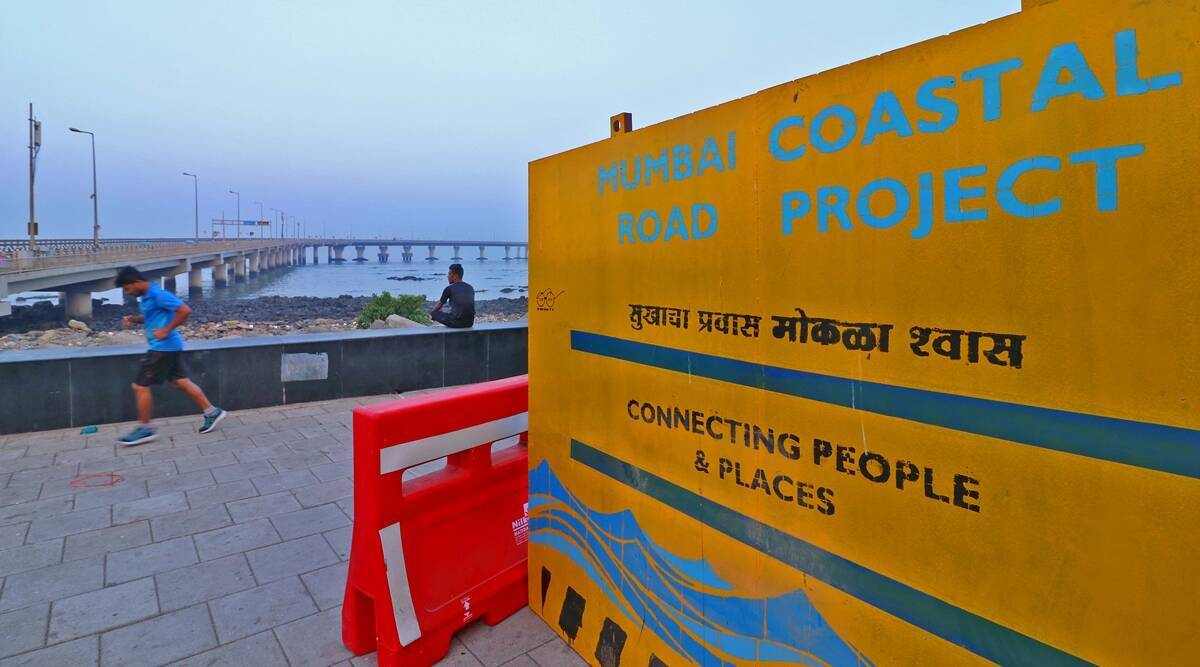 While the BMC is providing a span of 60 m between the pillars of the interchange, the fisherfolk have demanded a navigational span of 200 m for safe passage of their boats.
While the BMC is providing a span of 60 m between the pillars of the interchange, the fisherfolk have demanded a navigational span of 200 m for safe passage of their boats. A day after Mumbai Police warned protesting fishermen of Worli Koliwada Nakhwa Matsya Vyavsay Sahakari Society Limited against obstructing construction of the upcoming coastal road, their protest resumed at the Worli end of the construction site amid heavy police deployment on Tuesday.
For over two months, fisherfolk have prevented the contractor from beginning the construction of an interchange between the coastal road and the Worli end of the Bandra-Worli Sea Link.
While the BMC is providing a span of 60 m between the pillars of the interchange, the fisherfolk have demanded a navigational span of 200 m for safe passage of their boats. The fishermen maintain that the current design of interchange will cut them off from their traditional fishing grounds.
Starting 6.30 am on Tuesday, fishing boats from the bunders in Worli Koliwada surrounded the jetty and refused to vacate. The stand-off between the fisherfolk and the officials continued through the day. The tugboats and anchors were moved by evening, but not before the BMC officials, the contractors and the local police converged on the jetty to negotiate with the fisherfolk.
Reiterating that the interchange design and location have been vetted by competent authorities and that BMC is providing a higher navigational span than mandated by the guidelines of the Inland Waterways Authority of India, the civic body and the contractors tried to resume work at the Worli site.
Talking to the protesting fishermen, a policeman from the Worli police station said that the BMC has suggested that a qualified and independent organisation be appointed to review the fishing community’s demands.
However, the fishermen are irked with BMC’s insistence on an independent and expert review, which they say undermines their knowledge and expertise. Nitesh Patil of the Worli Koliwada Nakhwa Matsya Vyavsay Sahakari Society Limited said, “We will continue with the protest until our demands are met.”
- The Indian Express website has been rated GREEN for its credibility and trustworthiness by Newsguard, a global service that rates news sources for their journalistic standards.

